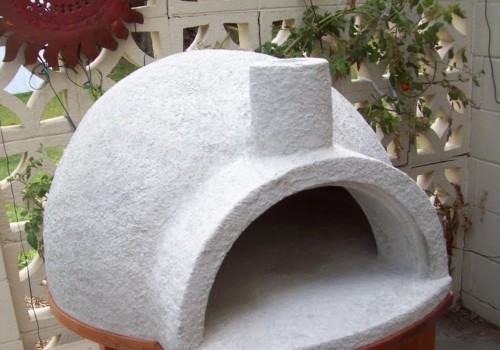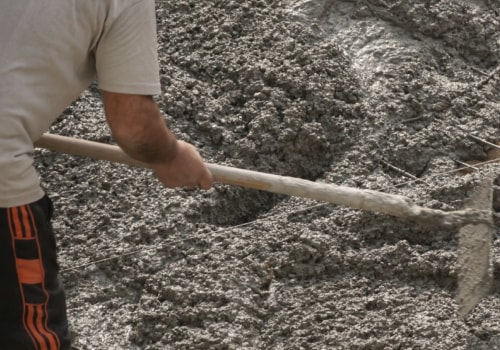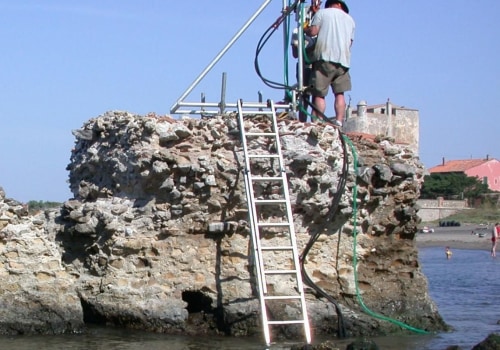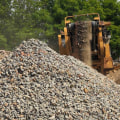Concrete is the most widely used artificial material on earth, and for good reason. It is an essential building material that is used in a variety of structures, from bridges and roads to dams and buildings. Its versatility and strength make it a reliable and durable choice for construction companies, both commercial and domestic. These excellent properties have made concrete an important asset in the construction industry, which ultimately affects the quality of human life. Concrete is the most widely used artificial material on earth, and for good reason. It is an essential building material that is used in a variety of structures, from bridges and roads to dams and buildings. Its versatility and strength make it a reliable and durable choice for construction companies, both commercial and domestic. These excellent properties have made concrete an important asset in the construction industry, which ultimately affects the quality of human life.
The rise of various infrastructure and building developments indicates capital expenditures to expand businesses that create jobs for people. Modern societies live in high-rise condominiums and other residential spaces, making living spaces one of the basic necessities of a functional society. The water-cement ratio plays an important role that influences several properties, such as workability, strength and durability. An adequate water-cement ratio is required for the production of workable concrete.
Various types of aggregates are used in the manufacture of lightweight concrete, including natural materials such as pumice and slag, artificial materials such as shales and expanded clays, and processed materials such as perlite and vermiculite. The technology of self-leveling concrete allows the formation of a low-viscosity concrete mix without the need for additional water, which increases the strength of the structure. When referring to concrete work, the typical application is through the use of cast-in-place concrete. Large structural projects, such as buildings and skyscrapers, will not be economical if the resulting concrete requires regular maintenance when its durability is questioned.
Bacteria such as Bacillus pasteurii, Bacillus pseudofirmus, Bacillus cohnii, Sporosarcina pasteuri and Arthrobacter crystalopoietes increase the compressive strength of concrete through its biomass. While chemicals in water can induce corrosion in concrete and reinforced concrete, concrete can resist water without serious deterioration compared to wood and steel. Making concrete stronger depends largely on the design of the mixture, specifically on the water-cement ratio. Traditional concrete can be stressed when exposed to moisture and higher concentrations of atmospheric CO2. In modern use, most of the production of concrete is carried out in a large type of industrial facility called a concrete plant or batch plant. Any interruption in concrete pouring may cause the initially placed material to begin to set before the next batch is added to the top. Bacteria such as Bacillus pasteurii, Bacillus pseudofirmus, Bacillus cohnii, Sporosarcina pasteuri and Arthrobacter crystalopoietes increase the compressive strength of concrete through its biomass. While chemicals in water can induce corrosion in concrete and reinforced concrete, concrete can resist water without serious deterioration compared to wood and steel. Making concrete stronger depends largely on the design of the mixture, specifically on the water-cement ratio. Traditional concrete can be stressed when exposed to moisture and higher concentrations of atmospheric CO2. In modern use, most of the production of concrete is carried out in a large type of industrial facility called a concrete plant or batch plant. Any interruption in concrete pouring may cause the initially placed material to begin to set before the next batch is added to the top.
This similarity means that concrete functions as a binder for the various masonry units under construction, just like any mortar. Insulating concrete forms (ICF) are hollow blocks or panels made of insulating foam or harrow that are stacked to form the shape of the walls of a building and then filled with reinforced concrete to create the structure. Of the various ingredients used to produce a certain amount of concrete, cement is the most energy expensive. Concrete is important because it provides strength, durability and versatility during construction projects. Its diverse applications in the construction industry affect human life by creating jobs and providing living spaces for modern societies. The water-cement ratio plays an important role in determining workability, strength and durability.
Self-leveling technology allows for low-viscosity mixes without additional water while bacteria can increase compressive strength through its biomass. Concrete can resist water better than wood or steel due to its design mixture and modern production methods.








